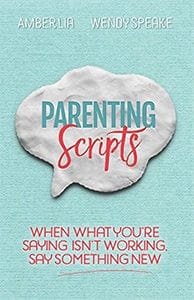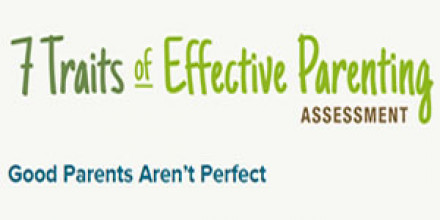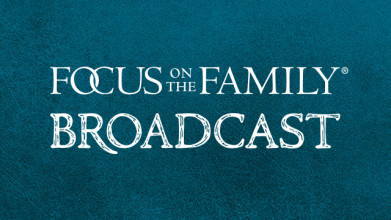Preview:
Wendy Speake: And yet every day we wake up and we go at it again. And come evening and you’re crying about how ya were blaming and shaming and negative with them and having a nasty face at ’em. And you’re surprised! But you didn’t prepare to do it any differently than you did it the day before.
End of Preview
John Fuller: Perhaps you can relate to that scenario from Wendy Speake about how easy it is to get into a cycle of ineffective responses as a parent. She’s with us today, along with Amber Lia, and they’ll offer practical advice for what you can do when you have a difficult parenting situation. I’m John Fuller, and your host is Focus president and author Jim Daly.
Jim Daly: John, I can hear clapping through the radio here. People going, “Yes! Yes!” The podcast listeners – we need this kind of practical advice. We’re gonna tackle a bunch of the big parenting issues that likely face you with your children. Let me just raise a couple of them – sibling rivalry. Now, I’ve got 2 boys two years apart. I’ve never had any sibling rivalry.
John: No. No.
Jim: They always play well together.
(LAUGHTER)
Wendy: Well, congratulations.
Amber Lia: That’s amazing.
Jim: Disobedience. No, neither of them has ever said, “No, Daddy. No.”
John: Not even when they were 2 or 3.
Jim: Trent started saying that at, like, 2 and a half. “No. No.”
(LAUGHTER)
And bedtime battles and so much more. We’re gonna cover the basics, and you’re gonna wanna get a copy of this, I think, for future reference. You know, here at Focus on the Family, this is why we’re here – to help you do the best job you can do parenting your kids and aiming them toward a deep relationship with Christ. I mean, that’s the goal. And, uh, that comes through in character and all the good things that we get to do as parents. But sometimes it becomes a bit heavy. And we’re here for you in that case, as well. So sit back, and let’s get started.
John: And Jim, you mentioned folks can get this. We are so pleased that they can get the free download at the website, focusonthefamily.com/broadcast. And be sure to get a copy of the book we’re gonna be talking about today, Parenting Scripts: When What You’re Saying Isn’t Working, Say Something New. I mean, that’s really good common sense. So…
Jim: I love the title. I wish it would’ve been out about, uh, 14 years ago.
(LAUGHTER)
John: Yeah, too late, but, hey, maybe for our grandkids, we can use it.
Jim: There ya go.
John: If we ever have grandkids. So Amber Lia is married to Guy, and they have four boys. And Wendy Speake and her husband, Matt, have three boys. These families live in the Southern California area, and they’ve been on this broadcast before.
Jim: Ladies, welcome back to Focus.
Wendy: Thank you. It’s a joy to be here.
Amber: Thank you. Yeah, we’re excited.
Jim: Oh, I mean, it is – this is the big thing when you’re parenting – you know, how to communicate effectively, how to get your points across, get those kids in line and get ’em moving, right?
Amber: Yes.
Jim: Get their rooms cleaned and all those wonderful things. You guys have really struck a chord with moms and whether the issue, last time when we had you was on anger – women and anger and – and this time, with the parenting issues – kind of the basics. But what are you seeing that you’re connecting so well with the mother community?
Wendy: Well, I think that we’re just um – I would like to say that we’re smart and so we’re talking about things that we perceive, things that…
(LAUGHTER)
Jim: This is your opportunity.
Wendy: I know. But I think that we’re just moms who have, um, truly struggled ourselves.
Amber: Yeah.
Wendy: And we have turned with all of our hearts and all of our prayers to the Lord and said, “Lord, we want to look more like You in the way we’re responding to our children and less like our natural, knee-jerk responses. And we can’t do that without You. We know that the fruit of Your Spirit is love, joy, peace, patience, kindness, goodness, faithfulness, gentleness and self-control, but my parenting doesn’t look that – like that. I know that You’ve told me if I abide in You and You abide in me, there will be fruit. So where’s the fruit God?” And so we just started pursuing, “What does it look like to put on the fruit, to keep in step with this fruit of God’s Spirit in my life?”
Jim: In the parenting role.
Wendy: In the parenting role as He continues to mature me from the inside, and the fruit grows up and out and hangs on the laurels of my life, how can I still start practicing love, joy, peace and all the other fruit?
Jim: You know, one – one descriptor you left off, which I think is an important one, too, is the tears that moms cry…
Wendy: Oh.
Jim: …Sometimes because of their own guilt.
Amber: Yeah.
Jim: You know, they got angry. “Oh, Lord, help me. Why do I get angry at my kids?” Speak to that before we get into the scripting idea because I think moms carry such a heavy burden. I’ve seen it in Jean.
Amber: Right.
Jim: I mean, it’s almost unbearable.
Amber: Yeah. Well, you’re totally speaking my language because that was me. I would say, you know, before I had kids, “There are certain things I’m never going to say to my kids.”
(LAUGHTER)
Jim: I love those words, never.
Amber: And I hear so many other parents say, “Oh, I’m so mad at myself. I promised myself I wouldn’t speak like that to my children.” And then we get in the heat of the moment, and we just have that knee-jerk reaction, that default phrase or thing that we say, the shaming language, whatever it is, that just flows right naturally off of our tongues. And we do feel a lot of guilt, and we say, “Oh, you know, I’m hopeless as a mom. Why do I keep doing that?” And I began to realize that as one day lead to the next, and I kept saying the things I did not want to say, that I didn’t have a good plan in place.
Wendy: Right.
Amber: I just simply didn’t translate those verses that Wendy just shared about the fruit of the spirit. I wasn’t thinking and making a plan, “What does putting on self-control for myself look like in the way I respond to my child instead of reacting to them?” And I can have hope knowing that God’s gonna help me.
Jim: Yes.
Amber: He promises me that fruit. I’m not the worst mom on the planet. I’m a sinner who’s struggling, but there’s hope for me to change because God is the God of all hope.
Wendy: Right.
Amber: And so I have the ability by relying on the Lord and asking Him to help me, “Lord, change this one thing in me…”
Wendy: Right.
Amber: “…This one thing I’m saying wrong. Help me make a plan, and to say something that honors You and really coaches my child and breathes life into him.”
Wendy: Well, and I love that she’s saying, “This one thing,” because what I say to the woman who’s crying is, “Hey, if ya take a moment, I bet you can pinpoint what that trigger is that’s – that’s bringing you to that place that makes you feel defeated and you’re doing the wrong response, your face is all screwy, and you’re – you’re exasperated, and you’re slamming cupboards in the kitchen. And what is it that consistently your kids are doing over and over that always takes you by surprise? Why are you surprised, when daily…”
Jim: Yeah, but that – that’s even – yeah.
(LAUGHTER)
Wendy: “…It’s the same stinking thing?”
Jim: Always takes you by surprise is the key.
John: Every time.
Wendy: It’s always, “Why can’t they get their shoes on and get in the car?” Or it’s, “Why is he always coming out of bed, and I’m exhausted at the end of the day?”
Jim: Yeah.
Wendy: And if you can pinpoint what it is – you know, one of the things that we shared with you guys last time, based on our book Triggers, which is really about mommy anger, is figure out what you mean to say before you say something mean.
Amber: Exactly.
Wendy: So take a look at those times when you’re really struggling and say, “Okay now, what do I really mean to say?”
Jim: Mm-hmm.
Wendy: And if I can slow down and sit down, then I can write down a better response.
Jim: Yeah.
Amber: And all of us can do that.
Jim: And – and I so appreciate the idea of that thoughtful response. So let’s get to this, kinda the “can-do”, make a change.
Wendy: Yes. You’ve have heard that – that quote that says the definition of insanity is doing the same thing over and over and expecting a different response. And so…
Jim: That’s why being a parent is insane.
(LAUGHTER)
Amber: Yeah. We’re all a little crazy.
Wendy: Like, you might be – you might be wonderful at lecturing, and every day, you do the same old lecture. And one day, you’re just hoping it’s gonna – it’s gonna click for him. No. You actually – let’s stop the lecture. Let’s come up with what we really mean to say. And sometimes the script is a consequence.
Jim: Right. So describe it.
Wendy: You’ve already been lectured about sibling rivalry, where – let’s take it…
Jim: Right, right, right.
Wendy: That was your first example.
Jim: Right.
Wendy: So they’ve heard all the verses about brothers living together in unity.
(LAUGHTER)
You’ve gone through all of the Bible studies. You’ve memorized them all.
Jim: Well, what’s really hard is they don’t care.
Wendy: Well, yeah.
Jim: That’s even worse. I told them, and they don’t care.
Wendy: Well – and the thing is they – they have…
John: This is a pretty classic response by a Christian mom to quote Scripture verses, right?
Wendy: Yeah. I know. It is.
Amber: Yeah.
John: …Or maybe to have the children write them out?
Wendy: Yes, yes.
Jim: Yeah, there we go.
Wendy: Multiple times. Yeah. But how can – if they already know it – one of the things that Amber and I remind each other – because we are friends, too – so I will actually call her and say, “I’m struggling with this! I did not know now that they’re getting older.” So we’re always reminding each other, “You know, Wendy, you don’t need to lecture him. He knows that that’s wrong behavior.” So let’s take it from sibling rivalry. I come in first thing in the morning, and they’re already swinging, if not with their hands, then with their words, right?
John: Mm-hmm.
Wendy: And my natural tendency – just my natural response – is that if they’re fighting, I need to fight them to stop fighting.
Jim: Right.
Wendy: You know, their fight is actually an invitation for me to join them in the fight. And I had to change my mind. And that’s actually one of my scripts when my kids are struggling. I’ll tell them, “I see that you’re struggling. You need to change your mind about how you’re gonna struggle.” And so I’ve been using that script on myself. “I see, Wendy, that they’re fighting, and you want to join them in the fight. You need to change your mind about how you’re gonna respond to this.”
So I have started seeing them like they’re in a boxing ring, and they’re swinging at each other. And the coach does not jump into the boxing ring. The coach stays on the outside of the ring, walks around their corner and is communicating, “I’m in your corner, and you’re struggling. I’m not struggling because I’m the parent. I’m the one here to help you through the struggle.” So I’ve had to learn when my kids are having a fight, their sibling rivalry, I stay on the outside of the fight, and I call them to their corners. So I’ll say out loud, “Ding, ding, ding. Everybody to your corners.” And that’s my simple script. So there’s a simple script, and then there’s a lecture script.
Jim: So do they go to their corner, or do they go…?
Wendy: They know. Yeah. And I’ll say, “Listen…”
Jim: “Forget it, Mom”?
Wendy: Well, I had to train them that this is actually what we do. And they’re older now. So I have a 14-year-old that when I say, “Everyone to your corners,” he goes to his room. And he knows – this isn’t really like – it’s not a timeout. It’s a gift. You get to go to your room. You can read. You can write. You can play your guitar. You can – kids can do Legos. But you may not fight. And so that’s another one of my scripts…
Jim: So…
Wendy: …Is, “You may not fight.”
Jim: Yeah, and that’s good. And I like that, and the concept of the script is, “Think it out ahead of time when your kids fight.” And you’ve listed 30 in this book, which is outstanding. If you cover 30, you’ve covered most of the things you’re gonna encounter. But let me take you to the sibling rivalry script, because having two boys, we’ve had a – a few of those. And the point is, in the training of them – you know, it’s great the outcome is there now. You can go, “Ding, ding. To your corners,” and they’ve learned to go. But the parent who hasn’t done that, it’s the training aspect. So how long did…
Wendy: It is.
Amber: Well…
Wendy: And I had to take ’em by the hand and walk them.
Jim: Right. Take ’em by the hand, walk – okay.
Wendy: And out they come.
Jim: And it’s good to start young. If you start it…
Wendy: And out they come – right?
Jim: Yeah.
Wendy: …Immediately after. I – I take ’em right back.
Jim: Yeah.
Wendy: …And, “Do you need me to sit here with you while you learn to have a break? And I’ll tell you why you’re having a break. You’re gonna hurt your brother. You’re gonna hurt your relationship. And I’m your mom, and I’m not gonna allow that. I love you too much. I love him too much.”
Jim: You know, I can think of a couple of times when the kids were younger, and they’re in a public place. And you can’t – it’s not at home where you can say, “Ding, ding, ding.”
Wendy: Right.
Jim: “Let’s go to your corner” because the corner is the other end of the store.
Wendy: Yes.
Jim: But what do you do in a public environment where so many moms – you know, it’s the snares and the…
Wendy: Sure.
Jim: …Growls that you get from the other mothers. But your two kids, maybe three kids are going at it. What can you do in that public place?
Wendy: Right. I have a couple of suggestions. One – if you can, leave.
Amber: Mm-hmm, yup.
Wendy: I mean…
Jim: Just…
Wendy: …It’s true. If you’re out of toilet paper and you’re out of milk, I understand you need to persevere and get it.
Jim: Make sure you get them.
Wendy: But really, you can leave. And what’s a better teaching tool to – you know, your veins are bulging and you’re, you know, strong-holding everybody with your hands and pushing the cart with your hip. And you’re just gonna make it through, and they’ll learn the lesson. And then you explode at them in the car – or to say, “This isn’t working.” And then you get to the car. You drive home. And oftentimes – I remember those times. They’d fall asleep almost immediately.
Jim: Yeah.
Wendy: And they were communicating, “I’m not in a place where I can do this,” right?
Jim: Yeah, right.
Wendy: But the second is you don’t need to teach your child in the problem what they’re doing wrong.
Jim: In the arena.
Wendy: So my script to myself is, “Don’t parent in the problem.” Save the lesson for later. Get home. Get calm and say, “That did not work. Let’s talk about why it didn’t.” And maybe – again, maybe the script needs to involve a consequence. When that happens, then when we come home, you need to – whatever that consequence is going to be in that situation, if we go for ice cream, if whatever it is…
Jim: No, that’s good.
Wendy: …Then you won’t get it. But you don’t need to stronghold them, push through, make sure it was the most teachable moment. You can actually save the lesson for later. Get out of there.
Jim: And it’s really being the adult. I mean, that’s what I…
Wendy: Thank you.
Jim: …Hear you saying. No, I appreciate that.
Wendy: We get to do that. Yes.
Jim: But you know, again, we’re all emotional creatures.
Amber: Right.
Jim: And even we, as moms and dads, when we’re in that grocery store, we’re responding out of our embarrassment now.
Amber: That’s right.
Jim: You know, we’re lashing back…
Amber: Yeah.
Jim: …And, “Get in line. What are you doing? Come on. Stop that.”
Wendy: Yeah.
Jim: And it just is this vicious cycle, so I like the idea. Step back. Don’t take the bait.
Amber: Right.
Jim: Just be calm. Get to the car. They’ll probably fall asleep.
Amber: And remember the script that you can say to yourself as a parent. Sometimes we need to have our own internal scripts. We write about that in the book, too. And sometimes the internal script that I have when – in the store when my kids are not behaving is, “Their behavior is not a reflection of me. It’s not a reflection of me.”
Jim: Really?
Amber: So breathe.
Jim: No, I’m telling you.
(LAUGHTER)
I’m just saying on behalf…
Amber: Truly.
Jim: …Of all moms. Are you serious?
Amber: Truly.
Jim: How do you get there?
Amber: Truly. It takes a long time. It really does, you know, to get to the point where you -you can just breathe. I just give myself a moment to catch my own breath because it’s more embarrassing when you see kids acting out and then you see the parents losing their minds, too.
Wendy: Again, joining them in the fight.
Amber: That’s more embarrassing, yes.
Jim: It’s like three kids going at it.
Wendy: Who’s the parent?
Amber: Yeah. Totally. And so I saw that so much in myself initially that I thought, “You know what? I’m – this time it’s gonna happen. They’re going to act out. So when it happens, I am going to be putting on self-control.”
Jim: Yeah.
Amber: And I’m going to breathe. And I’m going to remember that this is not a reflection of me. They are their own sinful natures.
John: Yes.
Amber: And what I get to do now is model. You know, all of these parenting scripts really are us modeling for our children how to communicate in a way that honors the Lord…
Jim: Yes.
Amber: …And breathes life into others. And they’ll be able to use that for every relationship they have moving forward.
John: I so appreciate the perspective that our guests are bringing today to Focus on the Family. Amber Lia and Wendy Speake, thinking about Parenting Scripts, the title of their book, and being willing to think through and frame things anew so your kids understand what the real issues are and how they can kind of own the outcomes in a way that they aren’t presently doing, and that the training aspect is so crucial that you’re bringing up. Get a copy of the book or a free download of the conversation at focusonthefamily.com/broadcast or call us and we’ll be happy to tell you more – 800, the letter A, and the word FAMILY.
Jim: All right. Let’s go to another good one – disobedience. “I said to do it.” “Why do I have to do it just because you said so?” “Because I said so.”
Amber: Right.
Jim: I mean, what parent hasn’t heard that at some age? I mean…
Amber: Yes.
Jim: …It’s usually 10, 11, 12, where they start…
Amber: Yeah.
Jim: …Kind of that challenge.
Amber: Mm-hmm.
Jim: But speak to the disobedience factor. Those things can happen at a young age, too. “I don’t want to.”
Amber: Right.
Jim: And…
Amber: And you know the response – the hands are on the hips and you’re saying, “Because I told you, or “Because I’m the parent.”
Jim: Right.
Amber: “Because I’m the mom,” you know?
Jim: And that’s good enough.
Wendy: Mm-hmm.
Amber: Yeah. That’s why. And, you know what? That is true.
Jim: It is true.
Amber: That biblically is true.
Wendy: There is a time for that.
Amber: Yeah. And there’s a time for that. We are the authority. God has given us that authority. But Wendy shared a verse earlier that, you know, we tell our kids the Bible talks about that you are required to obey us so that it will go well with you so that you will have a long life. There’s all these benefits to obedience. And so we try to talk about those sort of organically as we go throughout the day. Like, “Oh, look at – you – I just saw that you did the right thing. I’m very proud of you. That really blessed me. And I know that blesses the Lord.” So part of our scripts are looking for opportunities to be positively affirming them when they are obedient as opposed to always trying to parent and give scripts in the aftermath of the problem. But then, you know, catching them doing something good…
Jim: Mm-hmm.
Amber: …Is a really good headspace to be in as a mom.
Jim: That is a great comment. Yeah. And some researchers say you need 10 to 1, 5 to 1…
Wendy: Yes.
Amber: Right.
Jim: …Affirmative…
Amber: Yes.
Wendy: That’s right.
Jim: …Comments to one negative.
Amber: Yeah.
Wendy: I read that when my kids were very young. And I remember just crying. Like, I remember the snot.
(LAUGHTER)
Then I was like, “But – I – there aren’t that many positives.” And what I felt the Lord say to me was, “Well then, there needs to be less negative correction.”
Jim: Wow, that…
Wendy: Like, instead of saying…
Jim: You know…
Wendy: …I have five negatives…
Jim: Wendy, you gotta say that again because so many moms…
Wendy: Right.
Jim: …I feel it. I see it in Jean.
Wendy: I know.
Jim: It’s so counterintuitive for the mom…
Wendy: It is.
Jim: …To get that. Say it again.
Wendy: Sure. If the ratio, is we need ten positives to one negative and we can’t manufacture enough positives, we can’t find enough positives, well, that means we need to have less negatives. So I can see the negatives, and I can find a time to put those 25 nasty things my boys said to each other in one teachable moment. Say, “Hey, guys. After we clean up the dishes from lunch, I want you to join me on the white couch in the front room.”
Jim: “Not the white couch.”
(LAUGHTER)
Jim: I can hear them now.
Wendy: No good things happen…
Jim: “It’s that white couch. We’re in trouble.”
(LAUGHTER)
Wendy: Like, “Why not the orange couch? That’s where we have fun.” So they’ll join me in the front room. And I’ll say, “This is the rhythm that I’m noticing today.”
Jim: Oh, good.
Wendy: “How can we make a choice to turn around?”
Jim: So that’s the script…?
Wendy: That’s a script.
Jim: …On disobedience? What would be another example of disobedience with a script?
Amber: So one of the things that I did with my boys is I took that verse on obedience. Again, you know, I’m big on just taking one key area that I need to work on or that they need to work on at a time.
Wendy: Right.
Amber: Otherwise, we get really overwhelmed as parents. So if I’m working on disobedience with them, I will talk about, you know, all the benefits of obedience in the Bible, you know, just simply, casually, as we’re going about our day. And one of the verses talks about, you know, that it will go well with you. So I tell my boys – I said, “This is one of the benefits of obedience. When you obey me, when you obey your dad, it will go well with you. And the opposite of that is that things are not going to go well if you don’t obey. They’re just not gonna go well.” And so we kind of talk about that, you know, over a couple of weeks. And then, sure enough, the opportunity will arise where they inevitably will disobey. And something will not go well for them as a result. They will go way too high up on that, you know, hill that I’ve told them not to climb up on in our backyard and they fall, and they get hurt. Or I tell them, you know, “You need to take your jacket today because your teacher’s taking you on a field trip, you’re going on a long walk.” “Nope, not taking my jacket. Mommy, I’m frozen.”
Jim: Oh, man. You’re hittin’…
Amber: You know, there’s all these natural consequences. And sometimes it’s – “I clearly told you that, if you did this, this would be the consequence that you would receive.”
Jim: Yeah.
Amber: And now they’re experiencing that. So we know and we see. So in those moments, I’ll say, “You know what, son? I love you. I’m really sorry that happened. But what happens when you don’t obey?” And then they’ll say, “Things don’t go well.” “Yeah, they don’t go well. I’m so sorry you had to experience that from disobedience.”
Wendy: Amber is really good at parenting with empathy, allowing natural consequences to do the work…
Jim: Yeah.
Wendy: …And saying, “Wow, as a result of that, well, you hurt yourself. As a result of that, you can’t go to youth group on Wednesday night. As a result of that,”and “I’m sorry, that must be really hard for you.”
Amber: Yeah.
Wendy: “Let’s talk about how that might go better next time.”
Jim: Which, again – what’s so good about that – it takes you out of the direct firing line of the conflict.
Wendy: It does – you – you’re not even doing the parenting.
Jim: Right, which is…
Wendy: So allow – allow their consequences to do the parenting for you.
Amber: And asking them a question…
Jim: Yeah.
Amber: …To get them thinking…
Jim: Yeah.
Amber: …Because I’m not really just interested in the quick fix of their obedience. I’m really interested in them growing in character…
Wendy: Yes.
Amber: …So that when they become men, they think twice before someone pressures them into doing something that they know is wrong.
Jim: Alright, let’s get to another one before the close today.
Wendy: Sure.
Jim: And then next time we’ll come back and pick it up…
Wendy: Okay.
Jim: …But bedtime battles.
Wendy: Yes. I share – actually, I think that I share more scripts in this chapter than, like, maybe all the chapters put together…
Jim: Yeah.
Wendy: …Because it has been consistently a problem. And just the fact that there have been multiple scripts tells you that sometimes you just need to keep changing them up as you’ve got multiple kids, they go through multiple seasons. But it can be a silent script. It can be when they come out, you don’t talk. Take them by the hand – I’m talking about little ones – and you walk ’em back to bed. And you do it over and over and over.
Jim: Yeah, right.
Wendy: And another script – I had a child that was – man, he already struggles with discontentment and always asking for more. So I learned – I would walk up to his bed at tuck-in and I would say, “All right, before I get down there and I cuddle with you, I want you to tell me three things that I did amazing for you today.”
(LAUGHTER)
And he looked at me the first time, “Like, that’s a strange request.” I was like, “Come on, tell me because I know I did lots of really awesome mom things today.” And he said, “Well, you made me bacon.” I was like, “Yes, I nailed it. I made you bacon.”
Jim: I don’t know if he meant that as a positive.
Wendy: Nope. Nope. Bacon is a love language in our – yeah, yeah.
Jim: Okay, made you bacon, okay. I thought you said, “Made me bake.”
(LAUGHTER)
Wendy: No, no, he made me bacon.
Jim: Okay, that’s a good one.
Wendy: Yeah, that’s a good one.
Jim: Way to go, mom.
Wendy: And so I was like, “Okay, what else did I do?” “Well, you took us to the park, and you picked up my friend.” I was like, “Okay, you got three already, and we could go on. So now I want you to tell me three things that I can do for you at tuck-in that they’re just gonna fill your heart.” And he said, “Well, I’d love a back tickle and a blessing and a story.” Okay. So I get down there and I do that and then I said to him – and this became, really, the last part of the script: “Your heart is so full of all the “Yeses” you got today. You are not gonna call out and you are not gonna come out.” And I walked out, and I kid you not, he didn’t call out or come out.
(LAUGHTER)
Jim: You – you were holding your breath.
Wendy: It was like – I mean, I was standing outside the door like, “Yeah, really? Really? Is this gonna work?” And it was the thing – and then I started using that. I know that this – we’re not necessarily talking about discontentment right now, but I think that that can be one of the things – they want more and more and more. And so during the day I started using it. “Hey, Caleb, tell me three things that you’ve gotten a yes at today. Wow. That’s really wonderful. You don’t need to push for more right now.”
But my favorite bedtime battle script didn’t come from me – because I had tried all the things, and then there’s still other problems. My husband said at bedtime one night, “Guys, I’ve been watching you at bedtime. Your mom loves bedtime more than any other part of the day. She thought this was going to be just the most wonderful part of our family life. And you guys push her and push her and don’t honor her. So she’s not tucking anyone into bed tonight.” And the kids were like, “What? Life without a tuck-in?” He said, “You may meet with her on the couch” – back to the couch, right?
John: The white couch.
(LAUGHTER)
Jim: The white couch.
Wendy: She’ll be on the white couch.
John: That infamous white couch –
Jim: duh, duh, duh, duh.
(LAUGHTER)
Wendy: And they got to come to me, and the thing is I still gave them everything I usually give them. I hugged them, I blessed them, I sang their blessing, I tickled their backs sitting up, and I sent them off. And I said, “If you can stay in your room tonight, I’ll tuck you in tomorrow night.”
Jim: And it worked?
Wendy: And it worked. And now, when I see them coming out, I say, “Listen, you need to head back and if you can’t stay in bed tomorrow night, I don’t tuck you in.”
Jim: Yeah. And I think one of the difficulties is when it doesn’t work – you know, we’re laughing at some of this, but when you have what I – I mean, you were really confident in that moment at the tuck-in time saying, “Okay, here’s what I want from you. I want you to stay in bed.” And you turned around and you’re rightfully, as a parent, going, “Lord, may this work.”
Wendy: Please, please let this work.
Jim: Shut the door. And they didn’t come out. But speak to the mom who’s doing that but they’re coming out.
Wendy: Right.
Amber: Well, you know…
Jim: What’s the next thing to do?
Amber: …There some seasons, I think, where we need to embrace that we’re not gonna have the ideal scenario that we really want and hope for as a parent, and we may actually be missing out on something. I remember when, you know, my boys were really struggling with this. They’re very good now about going to bed because we’ve been exceedingly consistent…
Jim: That’s the key.
Amber: …Like Wendy was talking about – very, very key to be consistent. We have a routine that is as rigid as a prison system.
(LAUGHTER)
Amber: You know, it really is…
Wendy: With lots of love.
Amber: …Yeah, with lots of love, yeah.
Jim: And better food.
(LAUGHTER)
Amber: And better food, for sure. Yeah.
John: Bacon if they really…
Jim: Bacon
Amber: And nicer beds, so they should be very content with all of those “Yeses” – right? That we’ve given them, Wendy. But – so we are really, really consistent, and that helps. But there was a season when they kept pushing the envelope, and I began to realize that they’d start talking again – because they weren’t supposed to be talking after we had the lights out and we said our prayer – it was silent. I’d stay for a moment and then I’d hug and kiss and walk out. But they’d keep saying, “But, Mom, I really want to” – and I was trying to just nip that in the bud – like, “There’s no more talking now. The lights are out.”
Jim: Right.
Amber: And then I began to realize that the things they were trying to share with me were very meaningful.
Jim: Yeah.
Amber: And they wanted to tell me, “Mommy, you know, I had a hard time with my friend at school today.”
Jim: Right.
Amber: “You know, I really – by the way, Mom, I had this really successful moment in art class today and you know what my teacher told me?” Like, I was missing out. I realized I was shutting down their opportunity to express what was going on in the deep parts of their heart and mind that they wouldn’t normally tell me about during the day. And so I had to discipline myself to say, “You know what? It’s okay. This season is gonna pass. They need to tell me what’s on their hearts and minds right now. They’re not trying to be naughty, there’s just so many things they want to express.”
Jim: And I love that idea…
Amber: “So I’m gonna do that.”
Jim: …Of that settled hard at that moment. We have – one of our boys is like that. I mean, he just – he won’t talk all day. It’s grunts and groans. They’re teenage boys. And then, at bedtime, if you go in to say, “Hey, I just want to give you a hug.” Boom, he just starts going.
Amber: Opens right up.
Wendy: Opens right up, yeah.
Amber: Yeah. And I would hate to miss that. I would hate to miss that. I learn so much.
Jim: So it’s important to do that. Well, this is so good, you guys. Amber Lia and Wendy Speake – authors of the book, Parenting Scripts. Man, thank you for the start of this discussion. I want to keep going and cover a few more of the scripts…
Amber: Great.
Jim: …For moms and dads who are listening. And this is an outstanding resource. This is one of those very practical approaches to getting some of the basics of parenting right. And like I said, man, I wish you would have written this 14, 15 years ago for Jean and me. And I’m sure, John, you feel the same with Dena.
John: I do.
Jim: So listen, if you need it, call us. Of course, we’d love you to support the ministry, and our way of saying thank you is to give you a copy when you support the ministry to express our gratitude. But if you can’t afford it, get a hold of us. Others will cover enough to do that. And I believe in it that much – that every parent, regardless of your financial capability, needs a copy of this. So get a hold of us. We also have counselors who can talk with you, be there for you. And I am so grateful to all of you who help underwrite that.
John: Yeah. Your monthly gift is especially appreciated because we have a lot of budget planning around here. And those monthly commitments of $10, $20, or even $50 really help us. So if you can, make a monthly donation to Focus on the Family today. Please note, if you’re just not in a place to be able to do that, a one-time gift is always appreciated. No matter the amount, make your donation today and get a copy of Parenting Scripts. Just stop by focusonthefamily.com/broadcast or call 800, the letter A, and the word FAMILY. And while you’re there, be sure to take our 7 Traits of Highly Effective Parents Assessment. It’ll give you a firm grasp of where you are as a mom or a dad and some ideas on how you can better connect with your kids.
On behalf of Jim Daly and the entire team, thanks for listening to Focus on the Family. I’m John Fuller inviting you back – we’ll have Amber and Wendy join us again and we’ll once more help you and your family thrive in Christ.





















